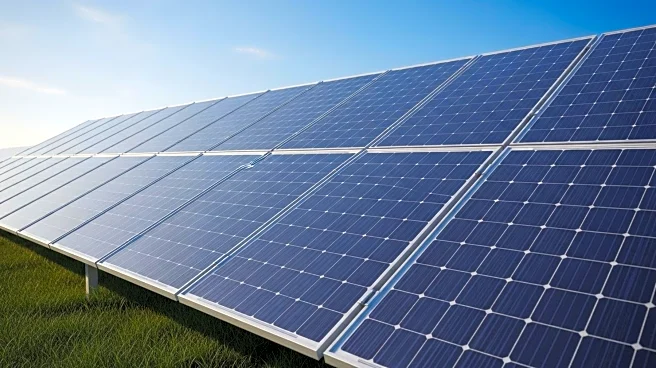What's Happening?
The federal rooftop solar tax credit, which provided an average rebate of about $8,000, expired on December 31, 2024. This credit had significantly boosted the installation of solar panels in the U.S. However, the expiration could prompt the solar industry to address high installation costs and other issues that have made solar more expensive in the U.S. compared to other developed countries. The Trump administration's withdrawal of federal support for solar manufacturers and imposition of tariffs on solar panels from China and Southeast Asia have also impacted the industry.
Why It's Important?
The expiration of the solar tax credit is expected to increase out-of-pocket costs for consumers, potentially slowing the pace of solar installations. However, it may also lead to a more efficient solar industry by eliminating subsidies that have perpetuated high costs and inefficiencies. This could result in a more competitive market, driving down prices and improving business practices. The long-term impact could be a more sustainable and affordable solar industry in the U.S., benefiting consumers and contributing to clean energy goals.
What's Next?
Industry analysts predict that the solar market will adapt to the changes, with growth resuming by 2028. Innovations such as streamlined permitting platforms like SolarAPP+ could help reduce costs and improve efficiency. The end of subsidies may also encourage better business practices and transparency, potentially leading to broader market reach for residential solar.










